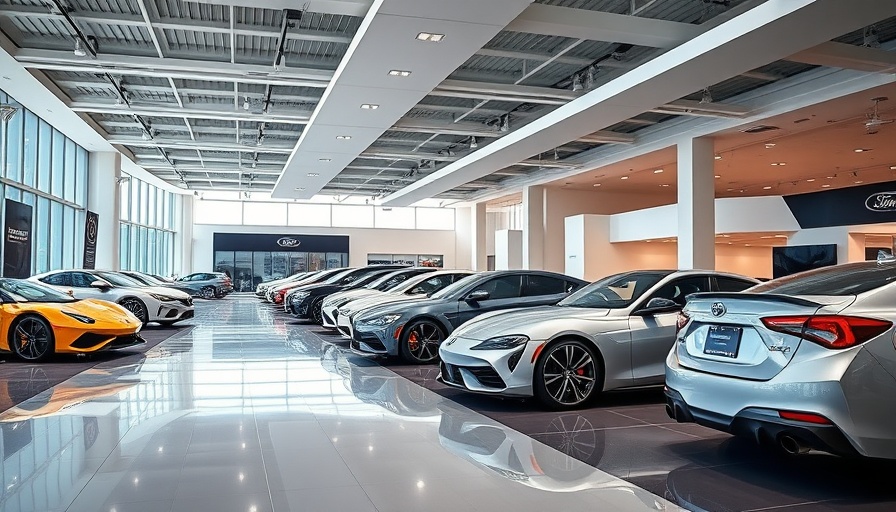
What’s Trending in the Auto Market?
The automobile industry is seeing a noticeable shift as summer sales peak, revealing changes in consumer behavior and market dynamics. In June, car sales cooled, reflecting a post-pandemic adjustment phase as buyers embrace a more cautious approach amidst economic uncertainty. After a boom spurred by government incentives and a temporary economic boost, or what some are calling the "Trump Bump," car manufacturing giants are grappling with changes in demand.
Understanding the 'Trump Bump'
During the Trump administration, tax cuts and regulatory rollbacks often fueled a surge in consumer spending, including within the auto sector. With more disposable income, many Americans took to purchasing new vehicles, contributing to record sales numbers. However, as the political climate shifted and with it, policies that may have been expiring or becoming less attractive, we are now witnessing a cooling effect that is echoing through the industry.
The Current Climate: What Factors are Influencing Car Sales?
Several pivotal factors have contributed to the cooling off of car sales. Rising interest rates, ongoing supply chain issues, and inflation have left consumers hesitant. The impact of fluctuating fuel prices has also made a significant mark, compelling many buyers to reconsider their vehicle choices. As gasoline prices hit new highs, fuel efficiency is now at the top of many consumers’ lists.
Looking Ahead: Future Predictions for the Auto Industry
Despite these challenges, analysts predict potential recovery patterns for the automotive market. As manufacturers adapt to new consumer preferences, focusing on electric vehicles (EVs) and fuel-efficient options may become key strategies. Companies that innovate around sustainable practices and alternative energy vehicles are expected to gain traction, as environmental concerns continue to rise among consumers.
What It Means for Local Dealers and Communities
This cooling trend doesn't just affect the major corporations; local dealers are also feeling the pinch. Many may need to rethink their sales strategies, from inventory management to how they engage with customers. Building a community connection may help revitalize the local auto market when large-scale incentives fade.
Insights from Experts: What Are They Saying?
Experts in the field urge consumers and dealers alike to stay informed about the economic indicators shaping the automotive landscape. They recommend strategies, such as taking advantage of current inventory discounts and focusing on long-term value rather than short-term gains. With careful planning, even amid industry reforms and resets, growth is still possible.
Analyzing the Bigger Picture: Broader Economic Impacts
Automobile sales are often looked at as a barometer of broader economic health. With the current fluctuations, many are questioning how this could affect various sectors, from manufacturing to job creation. Understanding the relationship between car sales and consumer spending trends can help us grasp how changes in one sector might ripple out to others.
Takeaway for Consumers and Industry Players
As the auto industry navigates this fragile recovery post-COVID, consumers can play an active role by making informed decisions about purchases. Whether it’s considering energy-efficient vehicles or supporting local dealerships, every choice matters. For industry players, adapting to changing consumer demands while proactively addressing economic challenges will be crucial to regaining momentum.
By keeping abreast of these shifts and understanding their implications, stakeholders can position themselves favorably in a rapidly evolving market.
 Add Row
Add Row  Add
Add 



Write A Comment